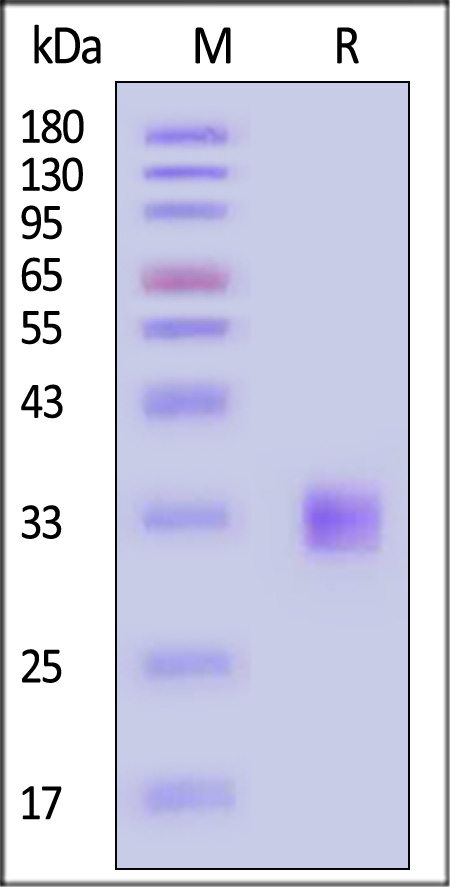IL-33 controls IL-22-dependent antibacterial defense by modulating the microbiotaRöwekamp, Maschirow, Rabes
et alProc Natl Acad Sci U S A (2024) 121 (22), e2310864121
Abstract: IL-22 plays a critical role in defending against mucosal infections, but how IL-22 production is regulated is incompletely understood. Here, we show that mice lacking IL-33 or its receptor ST2 (IL-1RL1) were more resistant to Streptococcus pneumoniae lung infection than wild-type animals and that single-nucleotide polymorphisms in IL33 and IL1RL1 were associated with pneumococcal pneumonia in humans. The effect of IL-33 on S. pneumoniae infection was mediated by negative regulation of IL-22 production in innate lymphoid cells (ILCs) but independent of ILC2s as well as IL-4 and IL-13 signaling. Moreover, IL-33's influence on IL-22-dependent antibacterial defense was dependent on housing conditions of the mice and mediated by IL-33's modulatory effect on the gut microbiota. Collectively, we provide insight into the bidirectional crosstalk between the innate immune system and the microbiota. We conclude that both genetic and environmental factors influence the gut microbiota, thereby impacting the efficacy of antibacterial immune defense and susceptibility to pneumonia.
Osteoprotegerin and Inflammation in Incident Peritoneal Dialysis PatientsMałecki, Okulewicz, Lisak
et alJ Clin Med (2024) 13 (8)
Abstract: Objectives: Osteoprotegerin (OPG) is a member of the tumor necrosis factor receptor family involved in processes in many inflammatory states. OPG concentration is enhanced in the majority of chronic kidney disease (CKD) patients and those undergoing renal replacement therapy. The aim of the study was to assess the relation of OPG and chronic inflammation in peritoneal dialysis (PD) patients and to evaluate whether OPG concentrations in plasma and dialysate were related to plasma and dialysate levels of proinflammatory mediators (interleukin 6 (IL-6), high-sensitivity C-reactive protein (hsCRP), interleukin 33 (IL-33) and interleukin 1 receptor-like 1IL-1RL1 (IL-1RL1, sST2)). Methods: The study included 37 patients of the Peritoneal Dialysis Center, Department of Nephrology, Transplantology and Internal Medicine, Szczecin, Poland, 4-6 weeks after the onset of peritoneal dialysis therapy. During a peritoneal equilibration test, plasma (at 2 h) and dialysate (at 4 h) OPG, IL-33, 1IL-1RL1 (sST2), IL-6 and hsCRP concentrations were determined. Results: Plasma concentration of OPG did not correlate with dialysate OPG level (Rs = 0.04, p = 0.8). There was a strong positive correlation between plasma OPG concentrations and plasma IL-1RL1 (sST2) (Rs = 0.41; p = 0.01), plasma IL-6 (Rs = 0.38; p = 0.01) and plasma hsCRP (Rs = 0.35; p = 0.02). Dialysate OPG concentrations were positively associated with dialysate IL-1RL1 (sST2) (Rs = 0.37; p = 0.02) and dialysate IL-6 levels (Rs = 0.44; p = 0.005). Multivariate analysis showed that higher IL-1RL1 (sST2) (ß = +0.38, p = 0.006), higher plasma hsCRP (ß = +0.32, p = 0.02) and older age (ß = +0.35, p = 0.01) were independent determinants of higher plasma OPG concentration and that higher concentrations of dialysate IL-6 (ß = +0.37, p = 0.02) were independent determinants of higher dialysate OPG concentration. Conclusions: Both plasma and dialysate OPG levels are associated with the severity of systemic and local inflammation illustrated by the plasma and dialysate concentrations of IL-1RL1 (sST2), hsCRP and IL-6, suggesting that OPG might have a pivotal role in explaining the milieu of systemic and intraperitoneal inflammation.
BMP4 up-regulated by 630 nm LED irradiation is associated with the amelioration of rheumatoid arthritisDu, Liu, Qi
et alJ Photochem Photobiol B (2024) 250, 112828
Abstract: Rheumatoid arthritis (RA) is caused by inflammatory response of joints with cartilage and damage of synovium and bone erosion. In our previous studies, it has showed that irradiation of 630 nm LED reduce inflammation of synovial fibroblasts and cartilage and bone destruction in RA. However, the key genes and mechanism in ameliorating RA by irradiation of 630 nm LED remains unknown. In this study, human fibroblast-like synoviocytes (FLS) cell line MH7A and primary human RA-FLSs were treated with TNF-α and 630 nm LED irradiation with the different energy density. The mRNA sequencing was performed to screen the differentially expressed genes (DEGs). In all datasets, 10 DEGs were identified through screening. The protein interaction network analysis showed that 8 out of the 10 DEGs interacted with each other including IL-6, CXCL2, CXCL3, MAF, PGF, IL-1RL1, RRAD and BMP4. This study focused on BMP4, which is identified as important morphogens in regulating the development and homeostasis. CCK-8 assay results showed that 630 nm LED irradiation did not affect the cell viability. The qPCR and ELISA results showed that TNF-α stimulation inhibited BMP4 mRNA and protein level and irradiation of 630 nm LED increased the BMP4 mRNA and protein level in MH7A cells. In CIA and transgenic hTNF-α mice models, H&E staining showed that irradiation of 630 nm LED decreased the histological scores assessed from inflammation and bone erosion, while BMP4 expression level was up-regulated after 630 nm LED irradiation. Pearson correlation analysis shown that BMP4 protein expression was negatively correlated with the histological score of CIA mice and transgenic hTNF-α mice. These results indicated that BMP4 increased by irradiation of 630 nm LED was associated with the amelioration of RA, which suggested that BMP4 may be a potential targeting gene for photobiomodulation.Copyright © 2023 Elsevier B.V. All rights reserved.


 +添加评论
+添加评论






















































 膜杰作
膜杰作 Star Staining
Star Staining



















